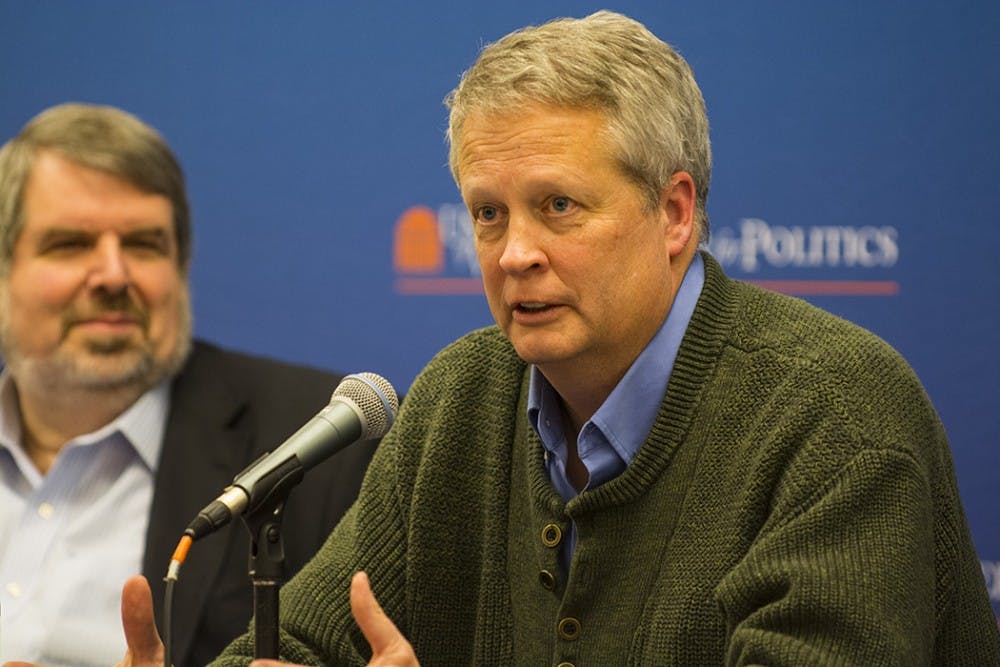The University Center for Politics hosted a panel of nationally-recognized pollsters Thursday to discuss the 2016 presidential race and the influence of polls in public opinion.
Kyle Kondik, managing editor of Sabato’s Crystal Ball and communications director of the Center for Politics, moderated the event.
The panelists included Glen Bolger, Courtney Kennedy, Doug Usher and Mark Mellman. All the panelists are currently engaged in public opinion research and trend analysis.
Panelists discussed the state of the 2016 primary and presidential elections as well as polling procedures, which gather data about public opinion and potentially influence how voters or candidates act as their campaigns move forward.
“This panel is very much in keeping with the Center for Politics’ mission, which is to hold events on campus and try to make people more aware of certain issues in American politics,” Kondik said. “Certainly polls are a big part of that.”
The event began with a discussion of the value in different polling strategies and the media’s focus on polling as an indicator of public opinion.
Both Kennedy and Usher were critical of the widespread coverage of polls in mainstream media.
“Small change reporting is not a good service to the audience,” Kennedy said. “Journalists should be skeptical, they should have standards. They shouldn’t report every piece of data presented to them.”
While Usher agreed with Kennedy on the issue of over-emphasizing the importance of polls, he also stressed the alternative would be for media to focus on other, less reliable details to investigate campaign support.
“For better or worse, reporting on polling is important,” Usher said. “While I agree that people should be more discriminating, to actively hide polling results is problematic particularly because of the alternatives.”
Two primary factors may influence how coverage moves forward in the election: how crowded the space is on a specific topic and what unique perspective could be offered by polling, Kennedy said.
Panelists also debated the nature of the campaigns of Democratic primary candidate Bernie Sanders and Republican primary candidate Donald Trump, whom they identified as unprecedented candidates.
Sanders and Trump clearly represent distinct political positions on the far-left and far-right, respectively, yet both also run anti-Washington campaigns, Mellman said.
However, Mellman argued the desire for an unconventional political figure is stronger among Trump’s fan base.
“The appetite for somebody who is different from Washington is much stronger on the Republican side than the Democratic side,” Mellman said.
Mellman also emphasized Trump’s appeal as a candidate with a “backbone of steel,” another primary difference between the two maverick players.
Regardless, all the panelists said polling should focus on reading into the layers beneath simple voter support for either party or any primary candidate. They said polling should get at the root of how the American people are voting and viewing their political candidates — what particular stances and ideologies gather support and from where.
“They might be saying Trump today, but what are they saying beneath that?” Usher said. “They might be saying Clinton today, but what are they saying beneath that?”
While the exact effects and benefits of polling as it currently stands are up in the air, Kennedy said it is a worthwhile practice which allows us to see into the mindset of the American people.
“It helps people understand what’s going on nationally — why certain candidates have some support,” Kennedy said of polling results. “It can open people's eyes to things that are going on in a campaign that aren’t obvious to them.”







